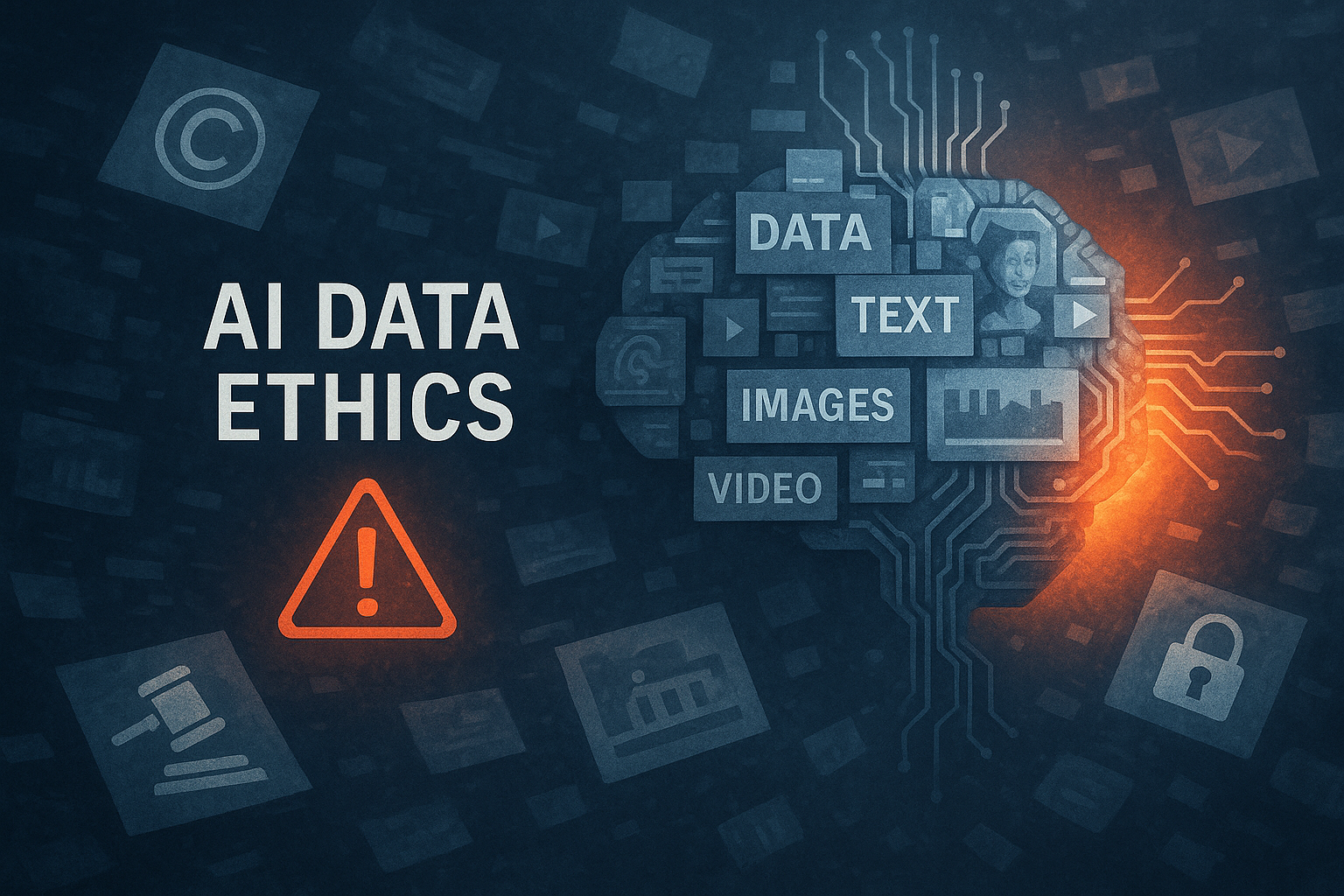The recent lawsuit against Apple (https://appleinsider.com/articles/25/10/10/academics-sue-over-using-pirated-books-for-apple-intelligence-training ) — accusing it of using pirated books to train Apple Intelligence — has reignited a critical debate across the AI industry:
- Where does training data come from, who owns it, and what happens when legality collides with scale?
While this case focuses on text data, its implications reach far beyond. It highlights a systemic and growing risk in today’s AI ecosystem — a commercial and legal vulnerability that extends into image, audio, and video generation models.
The Hidden Cost of “Unlimited Data”
Many generative AI systems — from text-to-image models to video synthesis tools — have been trained using vast web-crawled datasets, often without clear permission from the creators of the underlying content.
As lawsuits multiply across regions — from artists and authors to media companies and stock image platforms — the message is clear:
AI companies that rely on unlicensed data face not only legal exposure but also reputational and commercial risks.
For corporations deploying AI at scale, this translates directly into business uncertainty:
- Model outputs may contain copyrighted or sensitive material, creating downstream liability for commercial users.
- Customers and regulators increasingly demand evidence of dataset provenance.
- Investors are starting to evaluate data governance as a key factor in AI company valuation.
The Apple case is therefore more than an isolated controversy — it is a warning shot for the industry: the age of “train first, ask later” is over.
1. Responsible Data Foundation: Compliance by Design
At maadaa.ai, we believe innovation should be built on a foundation of legality and trust. Every dataset that powers our AI solutions is legally licensed, privacy-compliant, and ethically sourced.
Our Multi-modal Generative AI Large Datasets — Licensed Edition (https://maadaa.ai/datasets/GenDatasetDetail/Multi-modal-Generative-AI-Large-Datasets---Licensed ) are curated under strict copyright and privacy frameworks, ensuring that both creators and data owners are fairly recognized and compensated.

Rather than scraping data from the web, maadaa.ai works directly with publishers, creators, and enterprise partners to build structured, verified, and usage-cleared datasets ready for safe model training across text, image, video, and multi-modal formats.
2. From Data Ownership to Data Value: A Secure Monetization Pipeline
The AI era has transformed data from a static asset into a dynamic source of revenue.
maadaa.ai’s Data Intelligence Platform helps data owners transform raw content into high-quality, privacy-protected, and monetizable training datasets.
Our workflow integrates:
- Data cleaning and standardization for multi-modal inputs,
- Human-in-the-loop quality validation, and
- Automated copyright and licensing verification to ensure full traceability.
This enables universities, corporations, and content producers to participate confidently in the AI economy — not as exploited data sources, but as empowered data stakeholders.
3. Shaping the Future of Ethical AI
The Apple case serves as a timely reminder: without transparent data provenance and ethical sourcing, even the most advanced AI systems risk losing public trust and business viability.
maadaa.ai stands for a future where responsible data means sustainable AI — where compliance and innovation grow hand in hand.
By combining licensed datasets, secure infrastructure, and transparent governance, we help our partners build generative AI that is not only powerful, but principled.
Explore more:
Copyright-Granted Training Dataset for Generative AI



